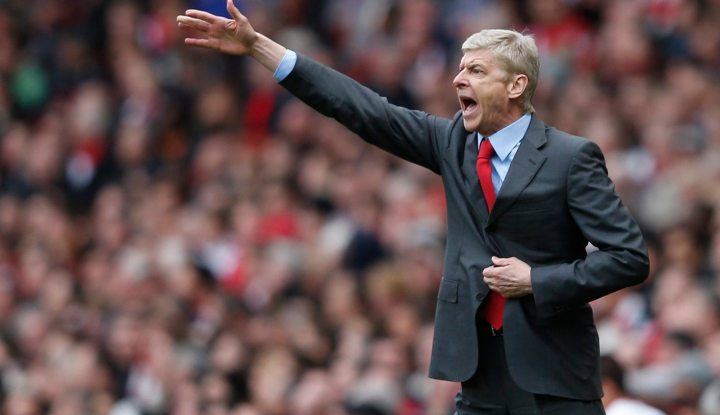Sport
Arsenal’s monetary policy still trumps thrill signings

The transfer window is open and Arsenal poking its nose through to take a look. Very little is coming back in, but it shouldn’t matter too much. Not yet. By ANTOINETTE MULLER.
It’s that time of the year again. Arsenal fans cling to every rumour: Wayne Rooney was spotted on the Virgin Train service from Manchester to London, in first class. Gareth Bale was spotting walking down Holloway Road. Jack Wilshere jokes that there will be pictures of Gonzalo Higuain’s girlfriend in the dressing room. Anything is a source of comfort for Gunners fans because Arsenal holds its purse strings so tightly and communicates so little.
Since the end of the 2012-13 football season, there’s been a lot of talk about what Arsenal can and can’t do in the transfer window. It’s been said that there’s plenty of money for Arsene Wenger to throw around. When Ivan Gazidis released a public statement in June with phrases like “not scared to spend”, Arsenal fans must have welled up.
To date, though, there have not been any signings to get overly excited about. There have been sales, though. Most of those sales are a bit of “load shedding”, but it should not go amiss how crafty Arsenal is in its transfer approach.
Higuain was supposed to join from Real Madrid, but the Gunners are refusing to budge for the £25.5m asking price. Rooney was supposedly in talks, but that rumour has stalled too. It is so very typical of Arsenal. It’s not that they don’t have the money, it’s just that they do not want to waste money.
In the Premier League, they are the club most successful at increasing the value of the players on their books. If that means haggling for a few million quid off the asking price of a player, so be it.
The Football Observatory, a research centre in Switzerland, recently produced an economic model based on criteria like achievement, age, contract length, international experience and official historic transfer fees, to put an objective price tag on every player in Europe’s ‘Big 5’ leagues.
Squads were then valued based on what they spent to be assembled, compared to what they are worth now, and Arsenal topped the list.
The squad that ended the 2012-13 season cost £168 million but is worth £269m, an increase of over £100m. Manchester United, meanwhile, was worth the most at £359m, with just £67m what it cost Sir Alex Ferguson to put together. Unsurprisingly, Chelsea and Manchester City were worth less than what they had cost to put together. Vito Mannone, the latest departure from The Grove, joined Arsenal for just £350,000. He’s now left for Sunderland for a reported £2.8m.
Yaya Sanogo, who joined the club as a free agent, is already a profit for Wenger. At just 20 years old, it’s unlikely that once the Frenchman gets the boot, it’ll be for free.
Arsenal’s business dealings are fascinating, not because they contrast to what other sides are doing, but because they are a wonderful reflection of basic economic sense. Wenger does get it wrong sometimes. Amaury Bischoff, plagued by injuries, joined the club in 2008. He played just one Premier League game, and was released in 2009 after failing to break into the first team. For Arsenal, though, that kind of failure is the exception and not the rule. Their economic approach affords them the luxury of sometimes getting it wrong. If, for instance, Sanogo doesn’t work out, so what?
It is fascinating, too, because it is such a rare approach. While Arsenal has, like many of the other clubs in the Premier League, “sold out” to big commercial deals, they still stay true to some of the basic good business principles.
Those who place stock in winning trophies will argue that the economics behind Arsenal mean nothing. But it should: when the financial fair play rules come barging in next season, Arsenal will be relatively safe. Under the regulations, spending from clubs cannot exceed revenue from TV rights, gate receipts, competition prize money and sponsorship. Clubs who break this rule face expulsion from European competition.
Arsenal turned a £3m profit in the summer of 2013, despite having made an £8m loss in the winter – this is based on spending of players leaving and arriving alone. Their other avenues of profit will far exceed this. Match day profits, broadcasting and commercial revenues bring in over £700m. There are clubs, like Manchester United for instance, whose profits far outweigh Arsenal’s, of course. United and the talk that the FFP will be Arsenal’s only saving grace is somewhat foolish.
What is fascinating, though, is that despite having the cash to splash, Arsenal has stuck with the old school approach. It’s endearing and sustainable. Buying a team by throwing money at a problem isn’t. Arsenal is short on talent – and how can you possibly be with a squad valued so highly?
It’s just that they need a little mental strength. A good sport psychologist doesn’t cost much. Neither does a new coach. DM
Photo: Arsenal’s manager Arsene Wenger reacts during the English Premier League soccer match against Manchester United at Emirates Stadium in north London April 28, 2013. REUTERS/Eddie Keogh



















 Become an Insider
Become an Insider